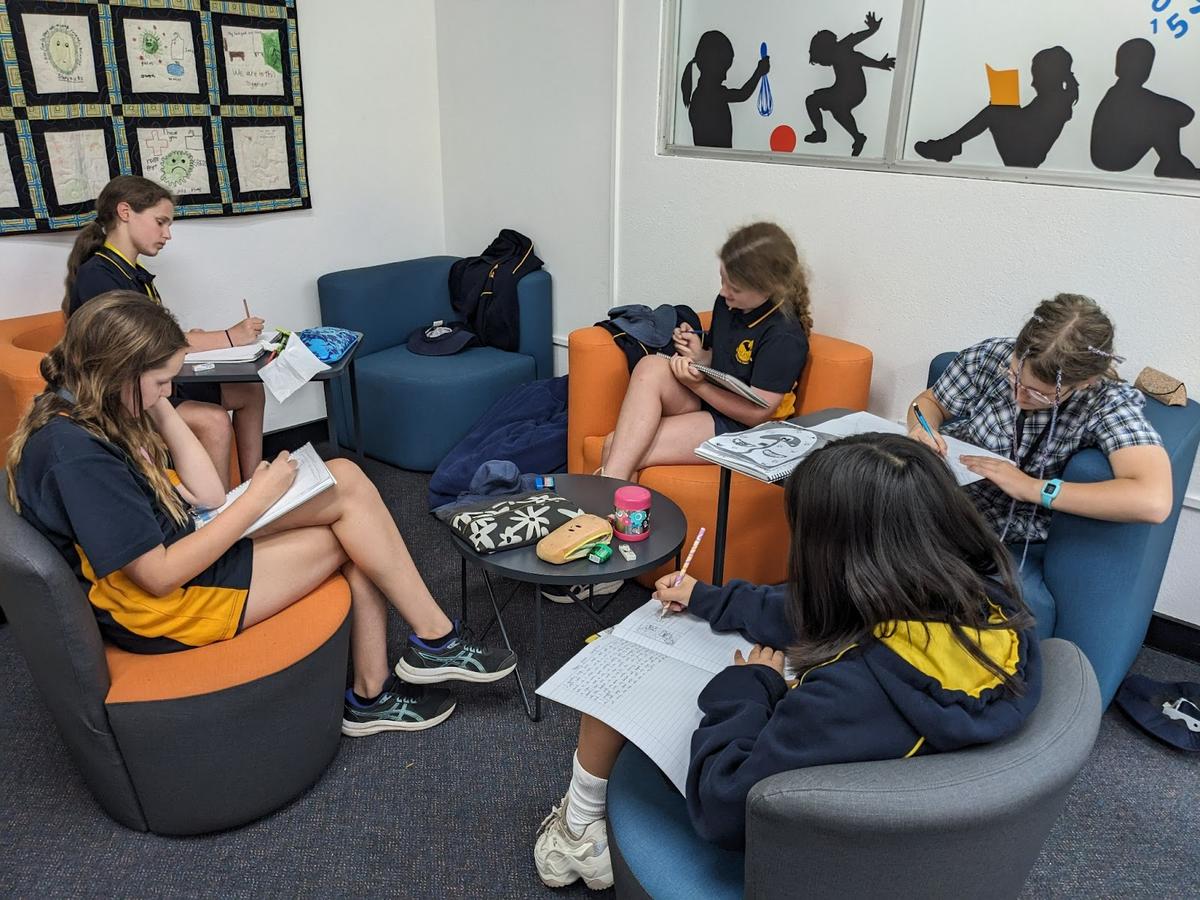Library News

Library end-of-year dates
‘Overdue book’ notices will be sent home with your child in week 5 of this term, and again in week 10.
The final date for students to borrow this year will be Friday December 6th.
All books (including ones at home) must be returned to the library by Friday December 13th.
Reading to (and with) your child: the benefits are enormous! And not just for little kids.
1. Helps with concentration
Reading aloud to your child can help them develop focus and concentration, in an interactive way. Listening to a story with characters and plotlines is good practice for kids in listening and concentrating for an extended period of time. If your child has difficulty focusing, start small - and then build up their ‘focus’ muscles each week!
2. Helps develop memory
To follow a book, you need to be able to remember the story! Reading a story to your child over a number of nights will help them build their memory skills. To help these skills grow, you might even ask them for a recap before you start your next reading session.
3. Opens up the world - and their imagination
Books are a wonderful window to other worlds and times. Instead of simply telling a child ‘this is how it is’, a fiction book gives the child a chance to construct a universe in their own mind as they read - or as they listen to you reading.
4. Grows empathy
Reading books can help children develop empathy, one of the most important social and life skills. The more we know about ourselves and our emotions, the better we can handle them. The more we know about other people, other viewpoints, and other experiences, the better we can empathise with others and relate to their points of view. Books can help us with both of these things.
5. Expands vocabulary
Did you know that just 20 minutes of reading time a day will expose your child to more than 1.8 million words a year? That exposure can come from reading a book themselves, or being read to! An expanded vocabulary for your child means more ways for them to express themselves, and an advantage for their schooling.
6. Teaches critical thinking
When we read, we build not only comprehension skills but also analytical thinking skills. You can help your child build these skills by asking them ‘open’ questions as you read together - “What do you think the writer means by that?” “Why do you think the character might have done that?” “How do you think the author’s experiences might have influenced the way they wrote this story?”
7. Helps develop a sense of identity
Representation matters, and identity is important. As well as being windows, books can also be mirrors of ourselves. Children may not see relatable images in mass media, and books can be a place where we see that there are all kinds of different types of people in the world - including ones just like us!
8. Better results at school
For all of the above reasons - and more - children who are read to more frequently tend to achieve better academically. You can read the research here: https://www.education.vic.gov.au/documents/about/research/readtoyoungchild.pdf
Scholastic Book Club dates 2024
28th November - Don’t forget! If you made a purchase in Issue 7, you will receive a $5 voucher for Issue 8 in your inbox from Scholastic!
1st December
Martina Medica,
Kalinda Library

